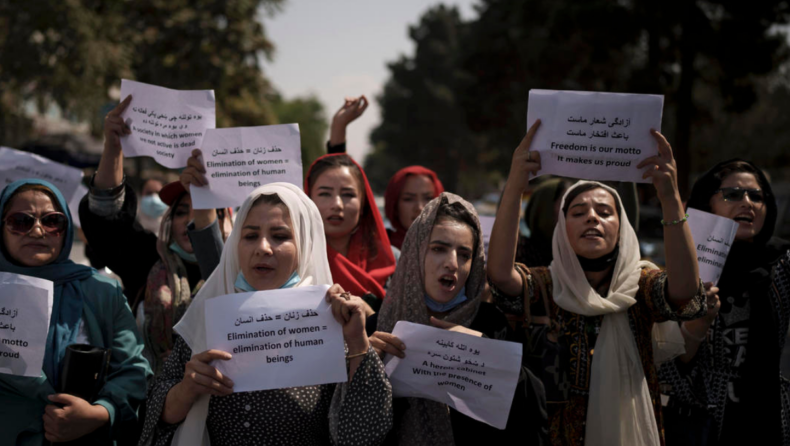The Taliban took power in Afghanistan for one year. Teenage girls are still barred from secondary school. In public, women have to cover themselves from head to toe. Schools are only allowed for girls up to 6th grade and not beyond. Many are getting an education in secret.
September 18 marks a full year since Afghan girls’ schools have been banned. On Sunday, the United Nations called for Afghanistan’s Taliban rulers. They asked to reopen schools for girls in grades 7-12, calling the anniversary of their exclusion from high school “shameful.”
The UN said it is about fundamental freedoms. The Taliban-led government still resisted women’s education one year after the Taliban took power in Afghanistan. The closing of the schools has impacted the country in a harsh way.
“This is a tragic, shameful, and entirely avoidable anniversary. The ongoing exclusion of girls from secondary school has no credible justification and has no parallel anywhere in the world,” said Markus Potzel, acting head of the UN mission in Afghanistan.
Still, teenage girls are barred from school education. In public, women have to cover themselves from head to toe, with only their eyes showing. The religious group has failed to provide education and enable girls’ return to the classroom.
Afghan girls’ situation
The ban on classrooms targets grades 7-12. Primarily, it is affecting girls aged 12-18. So far, approximately 850,000 girls have dropped out of school. Girls are at risk of child marriage and sexual economic exploitation.
The Taliban celebrated the first-year anniversary of their takeover. They imposed harsh restrictions on access to education and jobs for girls and women. Some people are struggling to find ways to continue education for young women. In homes, underground schools have emerged.
As the Taliban announced a public holiday to celebrate the day, schoolyards remained empty. The day is referred to as “The Proud Day of August, 15” and the “First Anniversary of the Return to Power.”
The Taliban have re-opened boys’ secondary schools. While girls are forced to stay at home, having no other option but to self-study. Over the past year, the U.N. estimates that more than a million girls have been excluded from attending secondary school.
“The ongoing exclusion of girls from secondary school has no credible justification and has no parallel anywhere in the world. It is profoundly damaging to a generation of girls and to the future of Afghanistan itself,” said Markus Potzel, who is also the U.N. secretary-general’s deputy special representative for Afghanistan.
Officials from the Taliban have stated publicly on numerous occasions that girls’ schools will reopen, but they also acknowledge that this is a “difficult” subject for them.
All girls were prohibited from attending school during their previous reign of power in the 1990s, reportedly owing to “security concerns.”
Around 50 girls mailed a letter entitled “A Year of Darkness: A Letter from Afghan girls to the heads of Muslim countries and other world leaders.” The girls are from the capital Kabul, eastern Nangarhar province, and northern Parwan province. They only gave their first names in letters.
In a letter, Azadi, an 18-year-old 11th-grade student from Kabul, said: “The past year, we have been denied human rights, such as the right to attain an education, the privilege to work, the liberty to live with dignity, freedom of mobility, and speech, and the right to determine and decide for ourselves.”
The U.N. said the exclusion of education violates the most fundamental rights of girls and women. Moreover, the world body said it increases the risk of violence, marginalization, abuse, and exploitation against girls.
The Taliban have been battling to govern and remain internationally isolated. The UN called for an end to all harassing acts. Activist Mahbouba Seraj urged the creation of a mechanism to investigate abuses in the 47-member council.
She told the room full of U.N. diplomats in Geneva, “God only knows what kind of atrocities are not being reported. And I want that to be reported because this is not right. World: this is not right. Please, please, you have got to do something about it.”
Taliban authorities closed down five girls’ secondary schools in eastern Afghanistan’s Paktia province. Repeatedly the UN has urged the Taliban to make certain of international human rights.
If schools remain closed, there will be no progress. Future generations will be ignorant and illiterate, further devastating the country.













